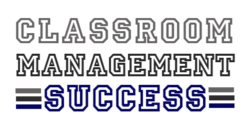Let’s admit it–our first year of teaching didn’t go as smoothly as we wanted it to be. It wasn’t as easy as we thought it would be. My first year had its ups, but it also had its share of downs. There are 5 things that I think would’ve made so much difference in my first year of teaching. I want to share them with you, so you wouldn’t make the same mistakes I did! If I had known these 5 mistakes then, I wouldn’t have had so much of a hard time trying to be an efficient teacher and classroom manager.
-
The Rules of Enforcing Rules

I have two things to say about enforcing rules in the classroom.
One is to keep the rules simple and to the point. Complex rules will just confuse your students and are prone to “loopholes” that may be manipulated by the wise kids in your class. You know, those kids who are good at getting away with things. When your rules are simple and direct, there’s nothing to turn over, it is what it is.
Second, you have to be consistent when enforcing those rules. You have to be consistent with the consequences. Do not let any instance of defiance go unmarked because the rules and the consequences lose their credibility. You shouldn’t let an act of disobedience pass because you’re in a good mood. You also shouldn’t make the consequences heavier when you’re tired or too stressed out. Regardless of what mood you’re in, you have to be consistent with your consequences.
-
Yelling at students

Yelling at students does more harm than good. Actually, it doesn’t do any good at all. It only builds a gap between you and your class. Just use a firm, quiet voice when the classroom is too noisy or when some things are going out of hand. This will build trust and respect between you and your students.
-
Not having a routine

Apart from rules enforcement, there is one other thing that should not be inconsistent–the daily schedule of the class. Children like routines. They like it when things are predictable, so they can expect what’s coming next.
-
Making lessons too long

Children have a relatively short attention span compared to teenagers and adults. They cannot sit still and listen to you discuss the World War II for a whole full hour. Once their attention span timer is up, you can expect your students to find something to do to pass the time–and nope, it’s not taking down notes. Make your discussions interactive. Don’t just ask questions to see if they’re listening. If you keep it fun and exciting, you wouldn’t need to check if they’re listening or not.
-
Lacking confidence

A class can sense if a teacher is a little on the weak side. If you don’t feel confident as a teacher, your class will eat you alive. They need someone who can protect them, and who can bring out the best in them. How will they feel that you are their leader if you don’t feel and act like one? Stand tall, speak proudly, your students are looking up to you.
Not all teachers experience the same things in their classrooms. These 5 things are just from personal experience that I would like to share with you because you never know, I might be able to help you. That’s what teachers do anyway, they try to help and inspire others.










